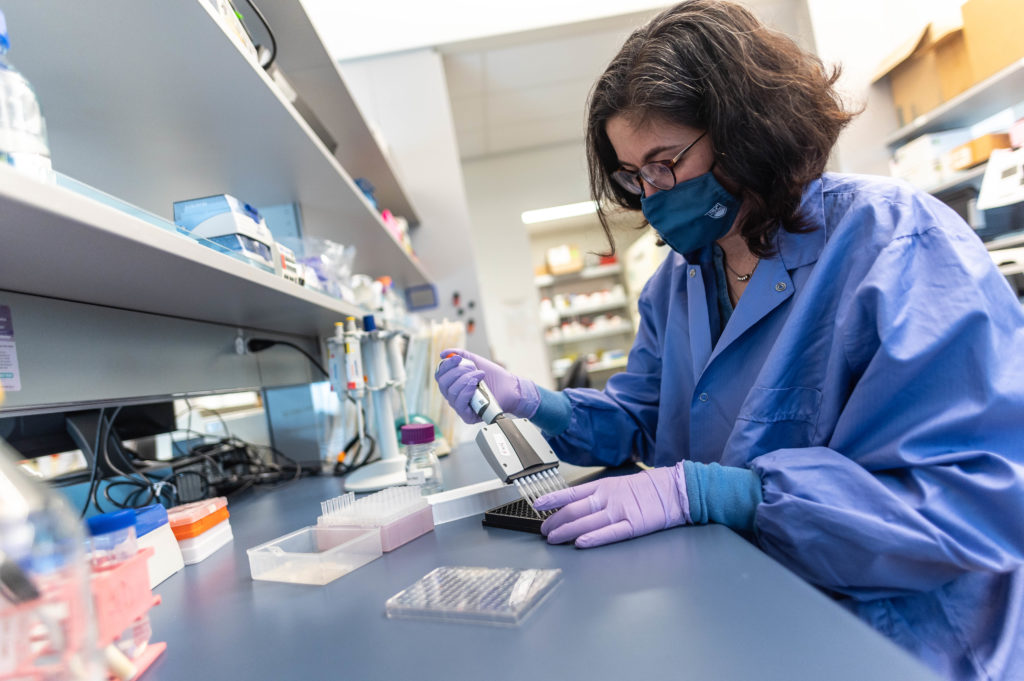
UBC researchers have identified three compounds that prevent COVID-19 infection in human cells, derived from natural sources including a B.C. sea sponge. The discovery paves the way for the development of new medicines for COVID-19 variants made from natural sources. And given nature’s abundance, there could be a wealth of new antivirals waiting to be discovered.
In a recent study, an international team of researchers led by UBC scientists investigated a catalogue of more than 350 compounds derived from natural sources including plants, fungi, and marine sponges in a bid to find new antiviral drugs that can be used to treat COVID-19 variants such as omicron. “This interdisciplinary research team is unraveling the important possibilities of biodiversity and natural resources and discovering nature-based solutions for global health challenges such as COVID-19,” said senior author Dr. François Jean, Associate Professor in the Department of Microbiology and Immunology.
By bathing human lung cells in solutions made from these compounds and then infecting the cells with SARS-CoV-2, the researchers found 26 compounds that completely reduced viral infection in the cells. Three were effective in very small doses. “The advantage of these compounds is that they are targeting the cells, rather than the virus, blocking the virus from replicating and helping the cell to recover,” said co-first author Dr. Jimena Pérez-Vargas, a research associate in the Department of Microbiology and Immunology. “Human cells evolve more slowly than viruses, so these compounds could work against future variants and other viruses such as influenza if they use the same mechanisms.”
The researchers used a version of the SARS-CoV-2 virus that causes cells to glow fluorescent green when infected, as well as a special screening technique, to identify the top 26 natural compounds that showed inhibition of COVID-19 infection with low cell damage. The fluorescent virus is a powerful tool, said co-first author Dr. Tirosh Shapira, a postdoctoral fellow in the Faculty of Medicine. “With it, experimentally laborious steps are made redundant so we can easily and quickly check thousands of compounds. Even more important, with it we have the option to track SARS-CoV-2 ‘live’ as it propagates from one cell to another.”
Please visit the UBC News site to read the full story.
Through Strategy 7: Research Support, UBC is committed to strengthening shared infrastructure and resources to support research excellence.